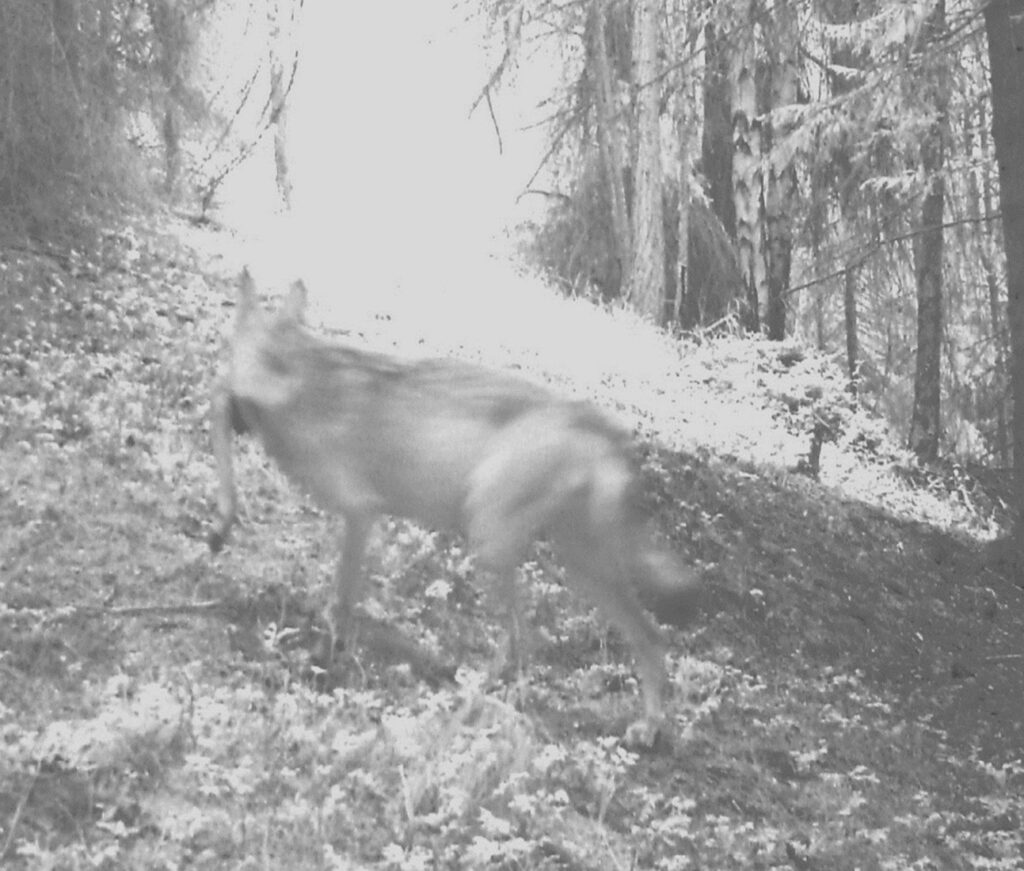
Researchers from the Department of Geography & Environment at the University of Aberdeen have published research investigating how emotions shape attitudes towards wolf conservation management in the Italian Alps.
Led by Sarah Trebo, with Emma Cary and Dr Flurina Wartmann, the study focused on the northernmost Italian province of South Tyrol which borders Austria and Switzerland. Wolf (Canis lupus) numbers in the region are increasing as the species recolonises some of its former range, after being hunted to near-extinction in the 19th and 20th century.
Previous research has demonstrated that emotions are an important factor in relation to wildlife conservation, including support for carnivores. Research that takes emotions seriously can help overall understanding of conflicts, social acceptance, the politicisation of actions and the acceptability of management strategies. However, emotions towards carnivore management have received little attention.
This study addresses this gap by using a quantitative survey to investigate attitudes to wolf management. We used psychological scales to assess respondents’ emotions about the presence of wolves in South Tyrol; specifically whether the presence of wolves evoked disinterest, fear, anger, sadness, frustration and interest/curiosity.
The study found that the emotions anger and fascination were significant predictors of management attitudes, but fear was not.
The study also found that the more fear people expressed about wolves, the less knowledge about wolves they had. Farmers reported significantly higher levels of fear, anger, and frustration, along with lower levels of fascination compared to the general public.
This research is timely given the recent decision to downgrade protection for wolves by the European Union.
The results reveal the predictive potential of emotions for the acceptability of wolf management which may be helpful in navigating the future of people co-existing with large carnivores in cultural landscapes. The findings also have wider implications for how we understand:




The paper is published in the European Journal of Wildlife Research and available open access at: https://doi.org/10.1007/s10344-024-01885-1
Notes on contributors:
Sarah Trebo is a Geography graduate from the University of Aberdeen with interests in land and marine conservation and human-environment interactions.
Emma Cary is a Doctoral Researcher in Geography & Environment at the University of Aberdeen. She researches decision-making in restoration and rewilding projects, with a particular focus on how different types of knowledge are used and integrated in these initiatives.
Flurina Wartmann is a Senior Lecturer in Human Geography at the University of Aberdeen. Her research focuses on hybrid methodologies to investigate people-place relations and cultural landscape values related to nature restoration and rewilding.
[Citation: Trebo, S., Cary, E., & Wartmann, F. (2025). Emotions shape attitudes towards wolf conservation management in the Italian Alps. European Journal of Wildlife Research. 71(7). https://doi.org/10.1007/s10344-024-01885-1]
Notes for Editors
| Reference | https://link.springer.com/article/10.1007/s10344-024-01885-1 |
| Published | Wednesday December 18th, 2024 |





















































